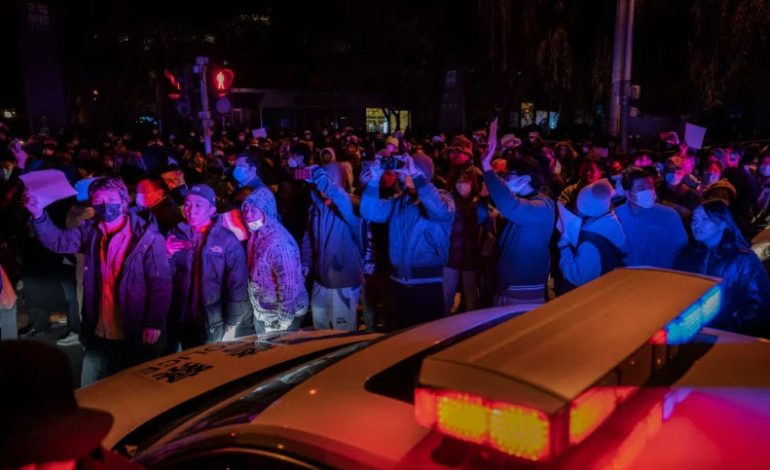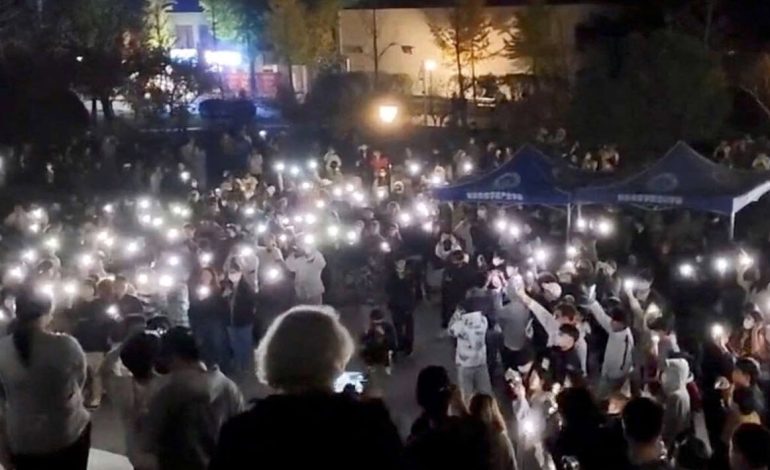
Protests Against Zero-COVID Are Rocking China
BY CHAD DE GUZMAN
28 NOVEMBER 2022
Across China, rare mass protests have grown against the country’s stringent zero-COVID pandemic protocols, with demonstrators in numerous cities taking to the streets to express their frustrations.
While protests are not completely unheard of in China, the ones that do occur tend to be location- or issue-specific—from workers demanding wage hikes to homebuyers decrying delayed housing projects. And a robust surveillance infrastructure and swift responses from state forces typically nip these in the bud before they can spread. This time is already different, though it’s impossible to verify exactly how many of China’s 1.4 billion people have participated.
The apparent catalyst was an apartment fire that took at least 10 lives in Urumqi, the capital of the northwestern Xinjiang region, last Thursday. Suggestions that COVID measures delayed emergency responders set off a wave of public unrest unlike any other.
The zero-COVID approach pursued by President Xi Jinping has kept infections at bay in China, but the prolonged isolation and regulated mobility it’s entailed has been increasingly met with public pushback and even been blamed for several recent high-profile tragedies. Officials deny that COVID policies were responsible for the casualties in the Urumqi blaze.
As China watches the rest of the world open up, frustration over its own harsh and disruptive pandemic measures grows. Those who flout the measures or criticize them have been beaten or arrested. Despite this, demonstrations against zero-COVID continue to sprout in major cities, including the capital Beijing and the financial hub of Shanghai.
The grievances against testing and quarantine requirements that reached a fever pitch over the weekend have also morphed into brazen opposition against Xi and the ruling Chinese Communist Party. “We don’t want a leader, we want votes,” chanted protesters in Beijing Sunday carrying blank white sheets of paper, a new symbol of resistance. In Shanghai, protesters have called for Xi and the CCP to step down and apologize.
Whether or not this discontent will challenge the ruling party’s power remains to be seen, but “the fact [the current mass protests] were even lodged in the repressive political atmosphere itself suggests that public dissatisfaction has reached the tipping level,” Yanzhong Huang, senior fellow for global health at the Council on Foreign Relations, tells TIME.
Here’s what you need to know about the protests rocking China.


